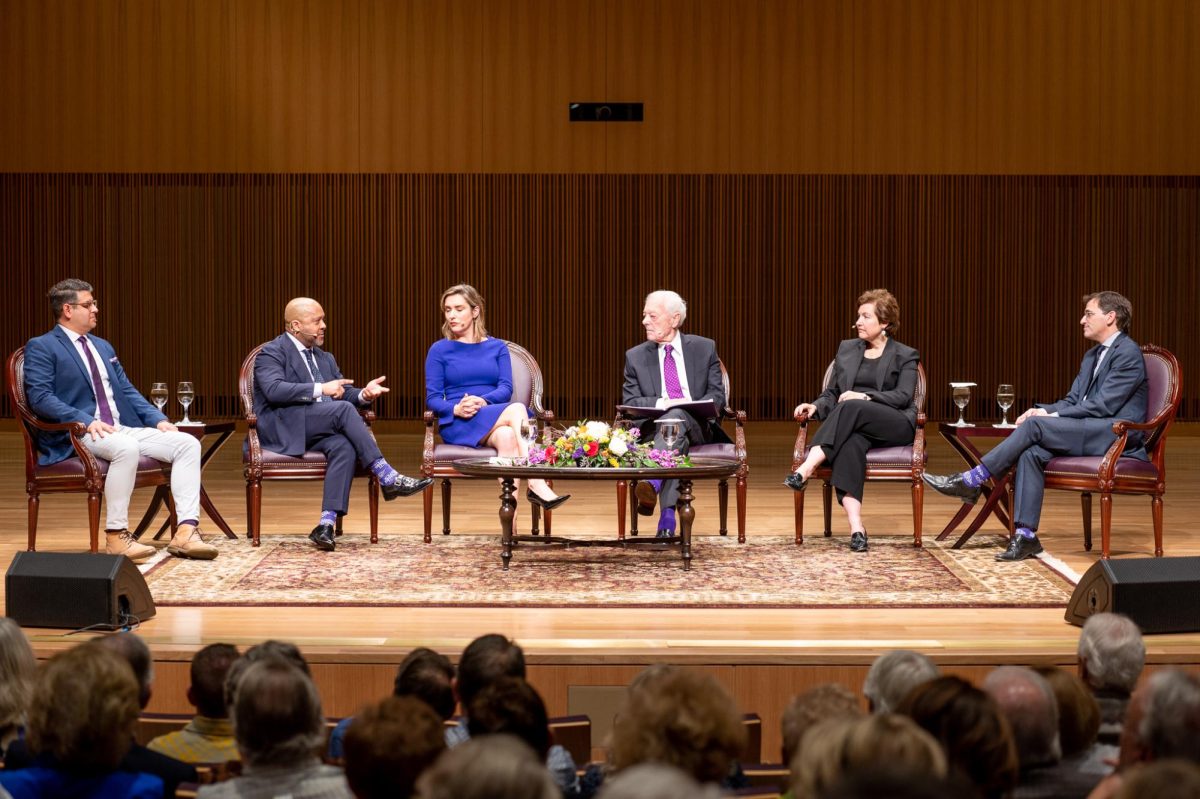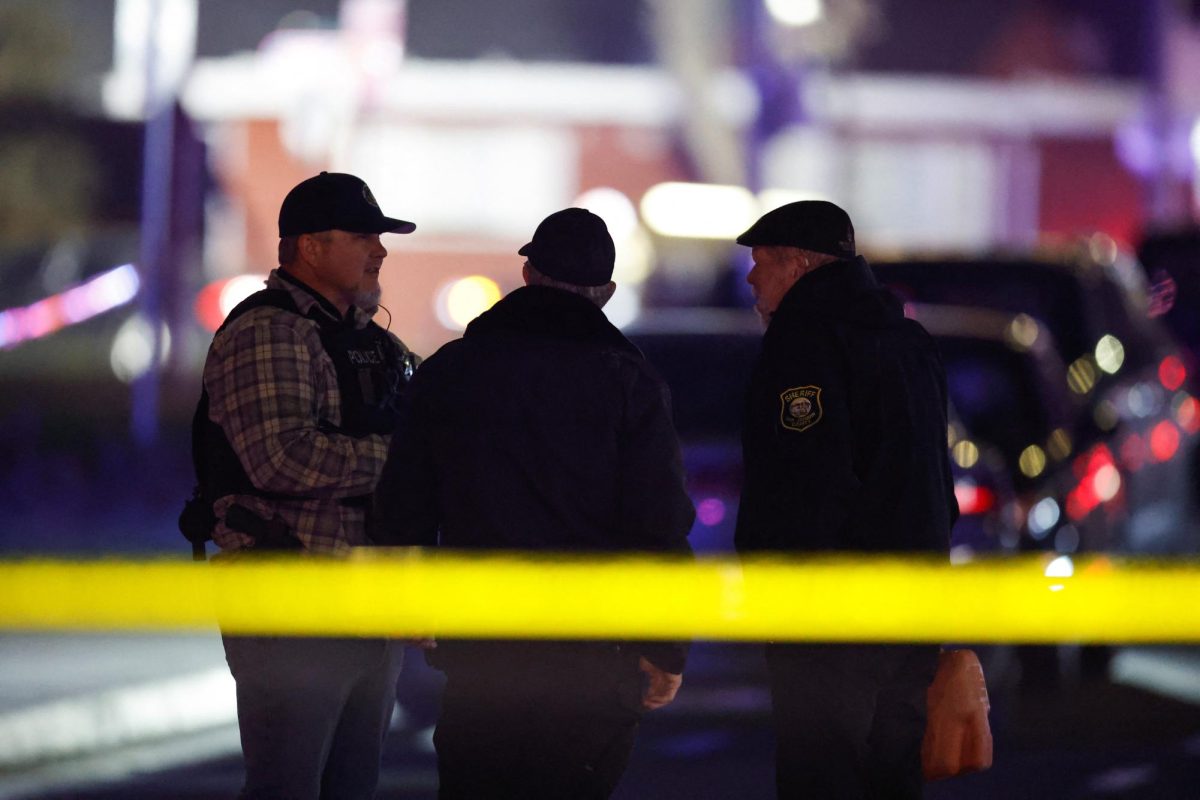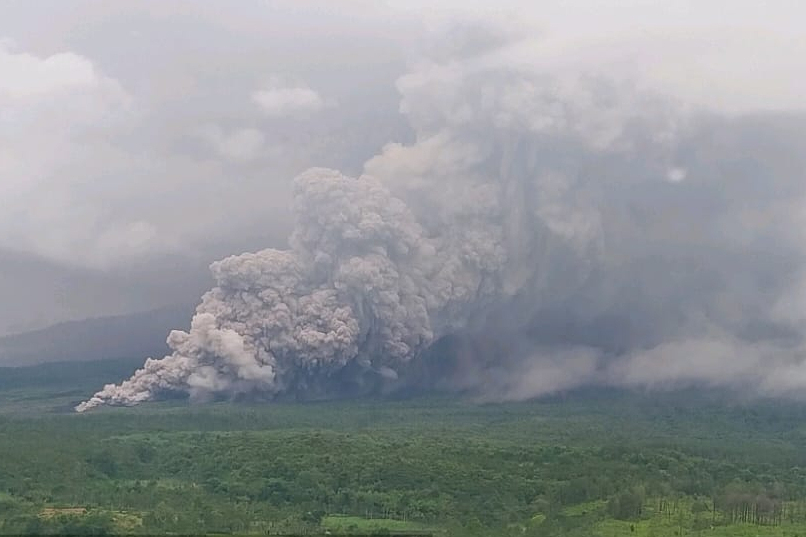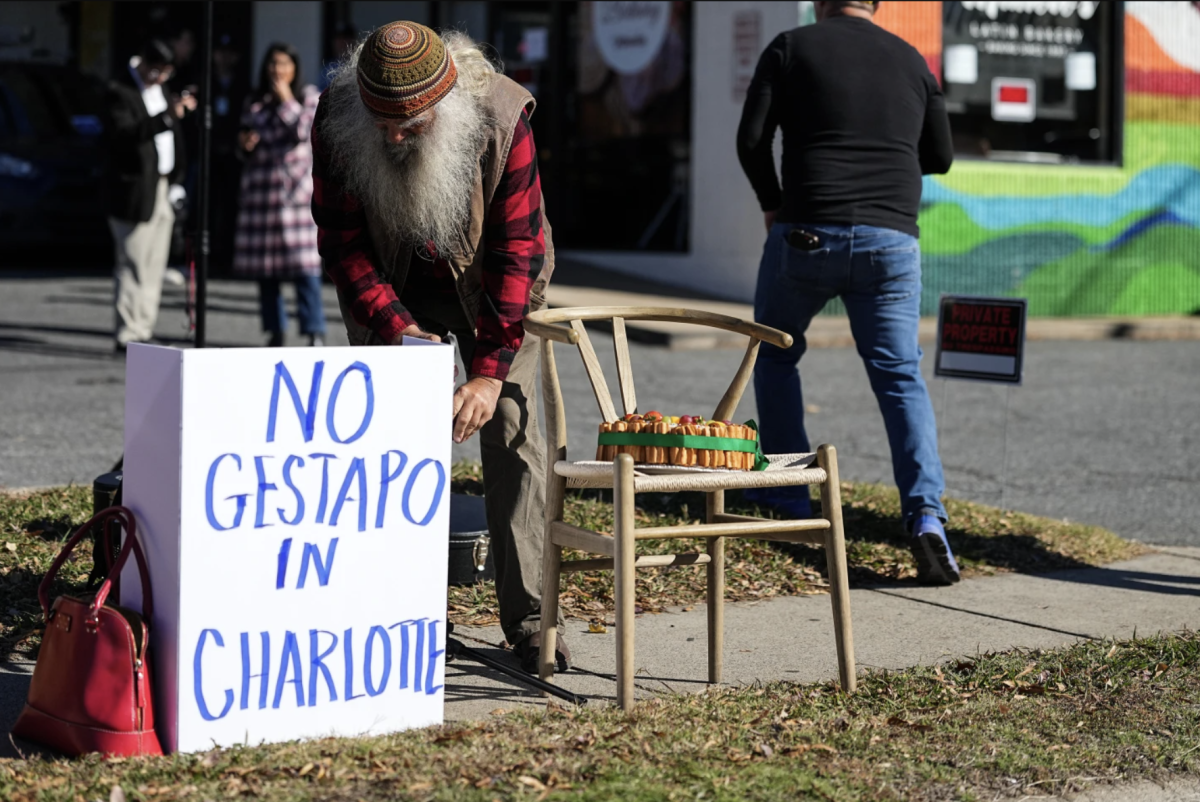A lack of trust in public institutions and the unraveling of American leadership on the global stage are among the most pressing issues facing America today, according to a panel of national journalists.
“I think America is going through an identity crisis right now,” said Peter Baker, the chief White House correspondent for the New York Times. “I think that there’s a real crisis of faith in what America stands for and how it will work in the future.”
The panel, hosted by retired CBS News journalist and TCU alum Bob Schieffer, returned for one night only to honor the 10th anniversary of the naming of the College of Communication for Schieffer.
In addition to Baker, the panelists were Susan Glasser, a columnist for the New Yorker; TCU alum Omar Villafranca and Jeff Pegues, who are both journalists for CBS News; and Margaret Brennan, who hosts CBS News’ Face the Nation. The discussion ranged from the wars in Ukraine and Gaza to the division in American politics and distrust in the media.
“If you want to look at the biggest geopolitical hotspot… I would argue that it’s actually not in this horrible war that we’re seeing erupt again in the Middle East,” Glasser said. “I would say that it’s in this room and in all the other rooms where we’re having conversations about the state of American politics headed into this presidential election year.”
She cited the dissolution of the “American-led international order” as a reason for recent volatility on the world stage.
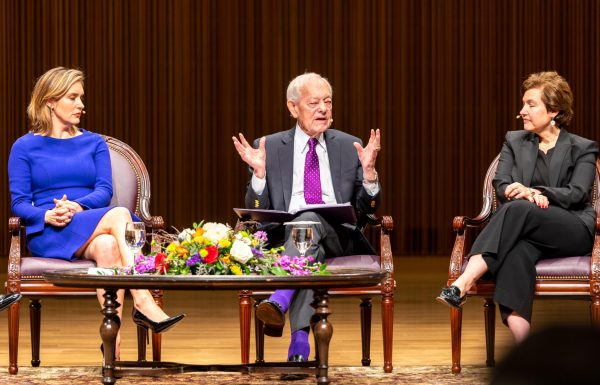
Glasser also called the emergence of social media a factor in American views on global conflict, citing the recent murder of a six-year-old Muslim boy in Chicago that is being investigated as a hate crime.
“We’re at this moment now where their war is also a war, in some ways, here at home,” Glasser said.
Panelists also attributed recent instability to a changing information landscape and declining trust in media outlets.
“To be a well-functioning democracy, you need an informed electorate,” Brennan said. “We saw that in the pandemic, when people paid with their lives for not having verifiable accurate information at their fingertips, and you can apply that to other crises that we’re facing now.”
At the core of the event, though, was Schieffer and the panelists’ passion for their work in the news industry. Each journalist shared how they came to their career.
“I either wanted to be an engineer or a journalist,” Villafranca said. “I remember sitting there in an AP physics class with a TI-85 calculator and thinking, ‘I never want to hold this thing again ever in my life.'”
For Baker, reporting is a source of continual learning. Early in his career, he was co-chief of the Washington Post’s Moscow bureau along with Glasser.
“This is fun. You get to learn things, you get to meet people,” Baker said. “When we were in Russia, we got to meet cosmonauts and ballerinas and chess grandmasters and KGB spies.”
He paused.
“To hear their stories and listen to them describe their part of the world? It’s magic, it really is, and I hope the next generation gets to see it the way we did.”

